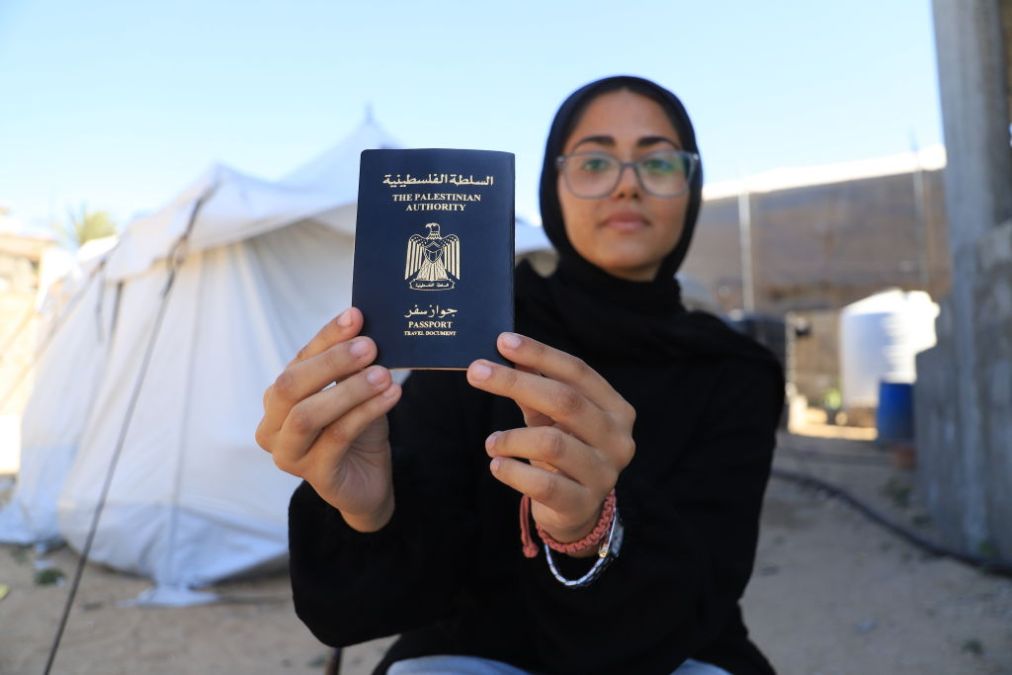URGENT UPDATE: The Trump Administration has just announced a sweeping suspension of nearly all nonimmigrant visas for Palestinian passport holders. This drastic measure, confirmed by officials to the New York Times, represents a significant escalation from previous restrictions affecting Palestinians seeking entry into the United States.
Effective immediately following a State Department cable issued on August 18, 2023, this new policy halts visas for medical treatment, educational pursuits, personal visits, and business travel. The directive applies to all Palestinian Authority (PA) passport holders, raising serious concerns about the impact on thousands of individuals seeking to travel to the U.S.
The State Department’s internal message instructed U.S. embassies and consulates to deny nonimmigrant visas to “all otherwise eligible Palestinian Authority passport holders.” This includes those applying for diplomatic or official visas. The guidance mandates the invocation of Section 221-G of the 1952 Immigration and Nationality Act, resulting in additional scrutiny of applicants.
The suspension particularly affects Palestinian passport holders from Gaza and the Israeli-occupied West Bank, as they navigate an already challenging landscape. The PA has issued passports since 1995, but it remains unclear how many individuals currently hold these documents.
This policy change coincides with a rising wave of international condemnation directed at Israel amid the ongoing conflict in Gaza. The nearly two-year-long Israel-Hamas war has resulted in over 60,000 Palestinian and 2,000 Israeli deaths, according to the Gaza Health Ministry and Israeli authorities. As humanitarian organizations describe the situation as genocidal, the urgency for medical and humanitarian visas for Palestinians cannot be overstated.
The directive has sparked outrage among critics who argue that it undermines humanitarian efforts, particularly as the U.S. has also halted visitor visas for Palestinians from Gaza, including those requiring urgent medical assistance. This comprehensive visa suspension raises pressing questions about the U.S. commitment to humanitarian norms and the treatment of vulnerable populations.
Several U.S. allies, including Canada, France, and the United Kingdom, have criticized Israel’s military actions and pledged to recognize a Palestinian state during the upcoming U.N. General Assembly. This growing international consensus is met with fierce opposition from the U.S. and Israel, escalating geopolitical tensions.
In a statement to CNN, a State Department spokesperson emphasized, “Every visa decision is a national security decision,” reflecting the administration’s focus on vetting PA passport holders. However, former U.S. Immigration and Customs Enforcement attorney Kerry Doyle questions the validity of these claims, suggesting that the true motives may align more closely with political support for Israel than actual security concerns.
As the situation unfolds, the implications of this visa suspension extend beyond travel restrictions; it jeopardizes the ability of Palestinians to seek essential medical care and education abroad, exacerbating an already dire humanitarian situation.
WHAT’S NEXT: Observers will be closely monitoring responses from international communities and potential legal challenges against this policy. The humanitarian crisis in Gaza, coupled with this new U.S. directive, is likely to remain a focal point of discussion as nations convene at the U.N. General Assembly.
Stay tuned for further developments on this urgent issue, as the impact of these visa restrictions unfolds on both humanitarian and diplomatic fronts.
